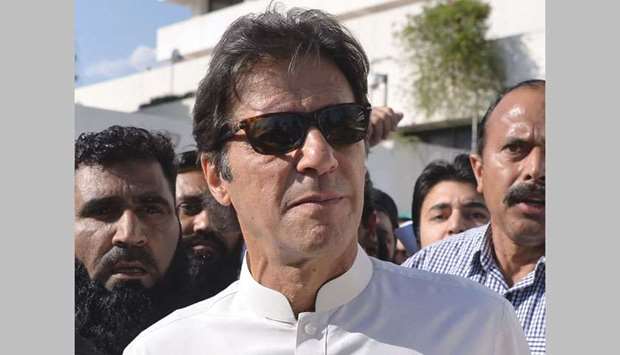Out of the 60 reserved women seats, the PTI has clinched 28, followed by the Pakistan Muslim League – Nawaz (PML-N) with 16 seats, the Pakistan Peoples Party (PPP) nine seats, the Muttahida Majlis-e-Amal (MMA) two seats, and one seat each by the Baluchistan Awami Party (BAP), the Baluchistan National Party (BNP), the Grand Democratic Alliance (GDA), the Muttahida Qaumi Movement (MQM), and the Pakistan Muslim League – Quaid-e-Azam (PML-Q).
Similarly, out of the 10 reserved seats for minorities, the PTI took five, followed by two each by the PPP and PML-N, and one by the MMA.
If the number of MNAs of the PTI and its allied parties are counted, the total comes to 184 in the 339-strong lower house.
In addition to this, four independent MNAs-elect are also poised to support the PTI, therefore making the strength of the PTI and its allies 188.
However, the PTI will not be facing a weak opposition, as the strength of arch-rival PML-N and its allies comes to 151.
The prominent women who would be MNAs on reserved seats include Dr Shireen Mazari, Munaza Hassan, and Andaleeb Abbas of the PTI, Tahira Aurangzeb, Shaista Pervez, former information minister Marriyum Aurangzeb, Zahra Wadood Fatemi, the wife of former special assistant to the PM on foreign affairs Tariq Fatemi, Mussarat Asif Khawaja, former foreign minister Hina Rabbani Khar, former religious affairs minister Shagufta Jummani, Shazia Marri, and former senator Rubina Irfan.
The National Assembly has a total of 342 seats: 272 general seats, 60 seats reserved for women, and 10 reserved for minorities.
The July 25 elections were only held in 270 constituencies as the polls in NA-60 Rawalpindi were postponed following the disqualification of PML-N leader Hanif Abbasi, while elections in NA-103 (Faisalabad) had been put off after the death of a candidate.
The notification of the success of Fida Dero of the PPP from NA-215 (Sanghar) has been withheld by the Election Commission of Pakistan, thus only the results of 339 NA constituencies have so far been announced.
Out of the total 141 general seats of the National Assembly in Punjab, polls took place for 139, with the PML-N and the PTI clinching 61 and 60 seats, respectively.
However, all seven independently-elected MNAs from the province joined the PTI, and the party was able to get 16 reserved seats for women as against 15 by the PML-N, out of the total 33 seats.
The PPP and the PML-Q, which had won six and four general seats from the province, respectively, received one each of the two leftover reserved seats for women.
There are 14 reserved seats of women from Sindh, out of which eight went to the PPP, four to the PTI, and one each by the MQM and the GDA.
Out of the nine reserved women NA seats from Khyber Pakhtunkhwa, the PTI got seven while the PML-N and the MMA secured one each.
There are four reserved NA seats for women from Baluchistan, the PTI, the MMA, the BAP, and the BNP secured one seat each.
The final party position after the allocation of reserved seats for women and minorities in the National Assembly shows that there will be a tough contest during the elections for the key offices of speaker, deputy speaker, and prime minister in the coming days.
The PTI has already nominated former Khyber Pakhtunkhwa Assembly speaker Asad Qaiser for the office of NA speaker, and he will face the PPP’s Syed Khursheed Shah, a joint candidate of the newly-formed 11-party alliance named the Pakistan Alliance for Free and Fair Elections.
Similarly, PTI chairman Imran Khan will be up against PML-N president Shehbaz Sharif for the office of the prime minister.
The PTI secured 158 seats in the lower house of parliament, but this number is certainly going to decrease as the ECP has already asked those members who have won from more than one constituency to retain only one seat.
Such members will have to send their resignations to the ECP before taking their oath as MNAs today.
When such MNAs-elect vacate their additional seats, the actual number of the PTI seats in the NA will come down to 152.
Similarly, the PML-Q’s Chaudhry Pervez Elahi won two NA seats in addition to a Provincial Assembly (PA) seat.
As he has decided to retain his PA seat after he was nominated for the office of Punjab Assembly speaker, the PML-Q will also lose two seats in the NA, leaving the party with only three members.
Since the PML-Q is an ally of the PTI, Imran Khan’s party will also lose two more votes in the crucial parliamentary elections.
The parties which have either already announced their support to the PTI or are expected to vote for the PTI nominees are the MQM with seven seats, the PML-Q and the BAP with five seats each, the BNP (four seats), the GDA (three), and the Awami Muslim League and Jamhoori Watan Party (with one seat each).
Besides them, nine independents have joined the PTI.
Four independents, who have decided to maintain their independent status, are also expected to vote for the PTI.
Thus, the PTI should get 180 votes in all the elections against 151 votes of the candidates of the joint opposition.
The PML-N, with 82 seats, is the largest party in the opposition group, followed by PPP (53 seats), the MMA (15 seats), and the ANP (one seat).
The PML-N’s Hamza Shehbaz won both a National Assembly and a Punjab Assembly seat.
If he decides to vacate the NA seat, the opposition’s tally will reduce to 150.

